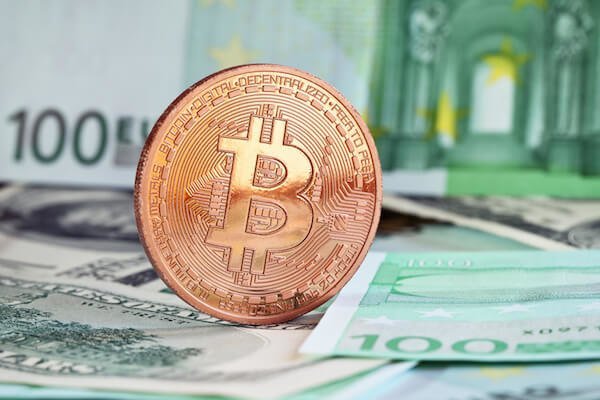Whether you invest or follow the cryptocurrency or not, it is likely that you have heard about bitcoin. News of the cryptocurrency has reached general mainstream media, not least in relation to the NHS cyber attack, where ransom payments were demanded in bitcoin.
Then there have been a number of digital exchanges, where bitcoin is traded, that have been hacked and bitcoin stolen. More recently, China announced its intention to regulate cryptocurrencies and the Chicago Mercantile Exchange (CME) agreeing to sell futures on the cryptocurrency. In the last week, a European fund manager has launched a bitcoin mutual fund for institutional investors.
Bitcoin has soared in value, particularly in recent months rising from $3,000 in August 2017 to just under $9,000 as of Friday (24 November 2017). Given its stellar performance of late, an air of scepticism pervades the valuation of this cryptocurrency, with talk that it is a speculative bubble waiting to burst. However, bitcoin has been known to go through peaks and troughs and each time it recovers, its value is much higher than its crash point. In the last few weeks, bitcoin lost $1,000 in a day, heading below $7,000 but is already valued at over $2000 more.
The digital ledger behind bitcoin, called blockchain, has the ability to be redesigned for other uses. Recently it was announced that American Express is able to process same day payments to Santander B2B accounts between US and UK, through a link up with Ripple. Other businesses are looking into how the software can be applied and this could be another reason that bitcoin valuations are being supported.
Lack of regulation
Until recently, cryptocurrencies have been unregulated by any global financial authority. With the lack of regulation around the currency, core principles of anti-money laundering, including KYC (know your customer) have not been checked. There is no way to currently know who actually owns each bitcoin and it is easy to transfer bitcoin to another person. In September, China revealed that it had passed a law that would enable it to legislate the cryptocurrency, recognising it as virtual property. They have since shut down bitcoin trading platforms in China, until new record keeping and anti-money-laundering checks are applied across trading platforms. Other central banks and financial regulatory institutions are looking at ways in which the currency can be controlled. Tighter regulation and control undertaken by other countries could change the demographic of the customer base that uses bitcoin, as it becomes more difficult to use it for illicit gains.
How and what can you buy with bitcoin?
Bitcoin is largely traded via a digital exchange, however, you can find bitcoin tellers or ATM machines globally. All you need is a digital wallet which you can set up using a smartphone with internet access and some cash to carry out the exchange.
Type “so what can you buy…” into Google and “so what can you buy with bitcoin” is the search term that appears top of the list. The answer is, not much in terms of the conventional high street shop, but there are retailers that will accept bitcoin online, generally in relation to goods such as video games, movies and apps, with some diversification into other products and services. Large corporates like Microsoft and Dell have experimented with accepting bitcoin for payments (the latter no longer does), while Paypal offers the ability for businesses to accept payment through bitcoin. It is unlikely that we shall see high streets stores adopting the cryptocurrency just yet, down to the digital ledger (blockchain) that transactions are confirmed through, which can only be confirmed in 10 minutes. As transactions cannot be verified instantaneously, there is risk to the retailer that you may have insufficient bitcoin funds to cover your transaction and they will have to recover the loss as a result.
Why are people buying bitcoin?
Some people seem to be attracted to bitcoin, as they are to gold. They may use it as a hedge against trouble, during geopolitical instability, or the investment of choice in a flight to safety, such as when stock markets experience significant volatility. In past years, during times of currency devaluations, people would turn to US dollars as this was viewed as the strong stable currency. However, in recent times, as demonstrated with instability in Zimbabwe, more Africans abroad have been carrying out bitcoin transactions for transferring money home for example; rather than transferring cash via bank accounts in US dollars or South African Rand. Should a banking system collapse or experience significant difficulties, this would not impact bitcoin.
It could be argued that people are speculatively buying into the cryptocurrency, following others driving demand (and price). Bullish investors are attracted by bitcoin’s recent performance and investing before the run is over, with some estimating that the currency could grow to $10,000.
Given the nature of bitcoin, and the lack of requirement of a bank being involved in the transaction, there is no way of a transaction being stopped or an account being frozen. As you do not have to prove your identity or provide a real one, bitcoin has an association with unlawful activities.
How about as a financial instrument?
Many investment banks and asset management firms, on both sides of the pond, are entertaining how to support their investors to buy into the cryptocurrency. Last week, French asset management firm TOBAM, launched Europe’s first bitcoin mutual fund aimed at the institutional market. They are targeting assets under management, into the fund, of €400million within three years. TOBAM were granted permission from the French regulator, after providing proof that the fund has a framework in which to protect investors. J P Morgan, headed by a well-known vociferous bitcoin objector, appears to be having a change of heart, as they are now considering how they can help their investors to invest into the cryptocurrency.
Recently, the Chicago Mercantile Exchange (CME) has approved the cryptocurrency to trade futures. This is the exchange that futures are traded through in US. A future is a financial risk management product and works as a contract agreement to buy/sell at a predetermined price in the future. Typically futures are sold in relation to currencies or commodities like agricultural products, metals and oil.
The future looks rosy for bitcoin, and people are still trying to buy into the action, with some expecting it to breach the $10,000 level very soon, with trading already seeing the valuation up to $9,600 at the time of writing. Whether the current valuation is significantly overstated is not clear as each correction delivers a higher rebound, with such significant volatility it’s an investment for those with a high appetite for risk.









